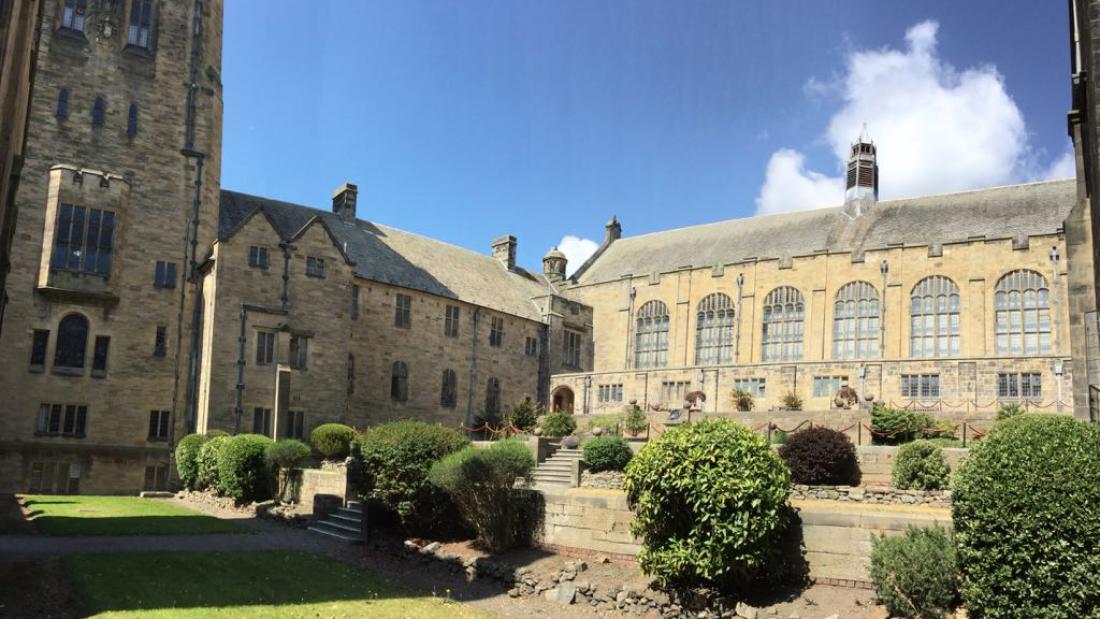Compulsory Modules:
Organisations and People: This module examines key issues arising from contemporary research in organisational behaviour (OB) and human resource management (HRM). It provides an integrated analysis of management organisations and people developing the conceptual strategic and practical skills necessary for managers in complex global organisational contexts. Specific topics include:
The nature of organisations
Organisation structures: strategy design and function job design
Organisation cultures: values ethics norms of behaviour
Theories and models of management: classical and contemporary
Individual differences: perception learning motivation equality and diversity
Groups and teams in the organisation
Managing relationships: power conflict communication engagement
Managers as leaders people developers coaches
Managing job satisfaction and performance
International Strategic Management: This module analyses strategic decision-making within business. You will develop a critical understanding of the strategic processes of business management the interconnections with the functional domains of marketing human resource management and corporate finance and the management of knowledge systems. Specific topics include:
Concepts of strategic management applicable to business
Prescriptive and emergent strategies
Strategy implementation through capacity building and resource allocation
Managing monitoring and reviewing strategic change
Organisational designs for strategic advantage
Human resources strategy marketing and corporate financial strategy
Organisational learning and knowledge management
Management Research: This module analyses the philosophical basis for research in the management sciences and examines a number of key methodological issues and approaches. Research designs for both quantitative and qualitative research methodologies are developed including interviews case studies focus groups surveys and experiments. Specific topics include:
Research methodologies and philosophy: positivism and interpretivism
Qualitative research methods and the search for meaning
Selecting a research strategy and design
Data gathering documentary records triangulation and mixed methods
Content analysis conversation analysis discourse analysis grounded theory
Quantitative research design and methodologies
Univariate and multivariate analysis factor cluster and discriminant analysis
Web Technologies: This module provides an understanding of the basic technologies and structures for developing web applications including internet resource creation search techniques and programming languages for creating web content. You will create and use multimedia content in web applications and gain familiarity with technologies for creating secure web applications. Specific topics include:
Internet concepts; networks; ISO 7 layer model; basic network architecture; routing; domain names; email; ftp; telnet; HTTP
WWW concepts; Internet resources; URI and URI resolution URL URN; relation to XML namespaces; search engines; search algorithms; search engine optimisation
JavaScript; PHP; CSS; programming tools and environments
Multimedia; WWW support for multimedia; file compression
Internet Security; Cryptography; standards for the Internet; public key systems; signatures; authentication; trust management; electronic cash; security issues; firewalls
Web programming; HTML; XML; form input; CGI scripting; Perl programming
Finance for Managers: This module is designed for those who aim to achieve a basic understanding of financial management and control and who require an understanding of finance in order to manage an organisation effectively. Financial planning and control are central themes as well as the appraisal techniques of investment projects. Specific topics include:
Principles underlying the preparation of accounting information
Recording business transactions
Preparation and analysis of financial statements
Preparation of budgets financial planning and control
Costing methods uses and interpretation of cost data
Investment appraisal techniques
Databases: This module shows how to design a database and intelligently query a database using SQL; and provides an introductory level of understanding in database systems. A mini project is carried out towards the end of the module. This project allows you to complete the entire development process from informal user requirements to ER EER modelling transformation into relations normalisation and finally to the SQL commands to create and query the database. Specific topics include:
Characteristics of a relational database
ER EER modelling of simple applications
Relational model and relational algebra
Transformation of an ER EER model into a relational database
Normalisation techniques
Uses of SQL language to create and query a database
Technologies for Internet Systems: This module introduces technologies and tools for Internet Systems and e-commerce systems. Technologies and structures for developing web applications are examined. Technical issues for implementing an e-system and commonly-available technology components are covered. You will implement a practical web based e-commerce system using relevant technologies taking into account current market implementation. Specific topics include:
e-commerce ideas and concepts
Internet concepts; networks; basic network architecture; routing; domain names; email; telnet; HTTP
Architectures and technologies e-payment e-commerce software and hardware e-security auctions
Design and implementation: HTML XML CSS JavaScript DOM SVG
Research awareness: agent-based e-commerce; web services; grid computing; virtual organisations
Information Systems: This module examines the major types and components of Information Systems their functions benefits and limitations. The theoretical underpinnings of Information Systems are analysed. You will study the main business and personal uses of Information Systems and how such systems are developed procured and deployed. Specific topics include:
Understanding the nature of organisations and the people within them and their use of information for strategic business purposes
The influence of human and organisational factors on the successful introduction of information systems
Methods and techniques involved in project and programme management
The importance of business processes and techniques for process modelling
Part 2:
For MBA Information Management you MUST:
Complete two of the following Applied Business Projects: Business Planning; e-Business and Chain Value; Human Resource Management; International Business; Operations Management; Investment and Private Banking.
Write a Computing project Software Hut. Software Hut is a project in which students (in groups) analyse design and implement a software product for an organisation.
Modules for the current academic year
Module listings are for guide purposes only and are subject to change. Find out what our students are currently studying on the Information Management Modules page.
Course content is for guidance purposes only and may be subject to change.
Apply Now
Find out how to apply
Postgraduate Tuition Fees
View our full tuition fees information
Register your interest in PG study
Register now
Accredited By
Chartered Management Institute Logo
Show less 